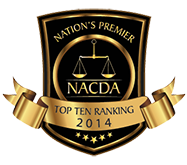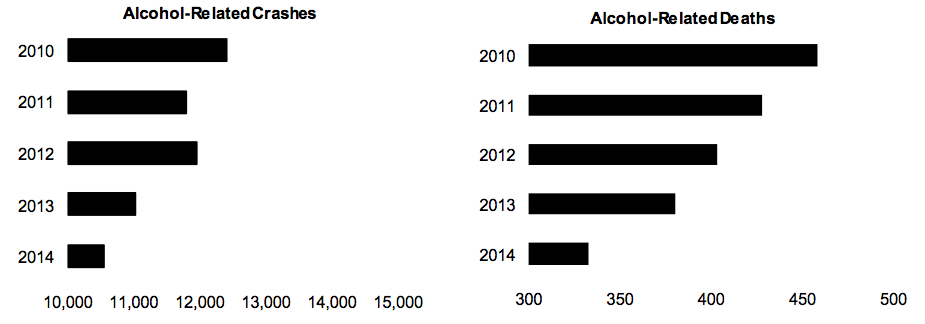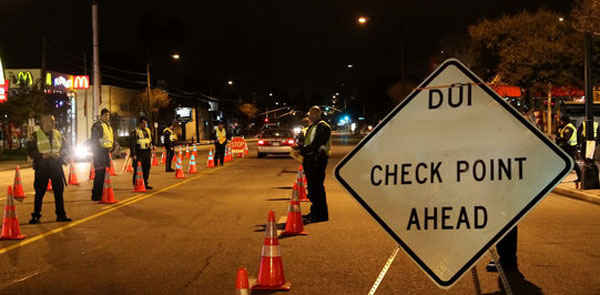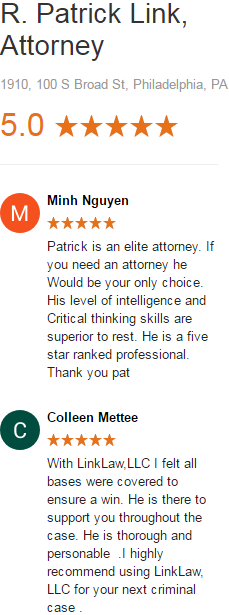Updated on 7/7/16 to include new DUI blood testing laws in Philadelphia, PA.
This guide from a Pennsylvania Criminal Defense and DUI Lawyer, outlines mandatory minimum sentences for DUI, new alcohol blood test rules, frequently asked questions about DUI in PA, and what to do if you cannot avoid being arrested for a DUI (call an experienced lawyer immediately).
 Many people who are arrested for Driving Under the Influence (DUI) in Pennsylvania are released from custody without having to post bail, which leads to the mistaken assumption that they are only facing a slap on the wrist.
Many people who are arrested for Driving Under the Influence (DUI) in Pennsylvania are released from custody without having to post bail, which leads to the mistaken assumption that they are only facing a slap on the wrist.
In reality, Pennsylvania DUI laws are among the harshest in the nation. That is why an aggressive, experienced DUI lawyer is particularly important in a DUI case.
What You Will Learn in This Guide:
- The New DUI Blood Test Laws in Philadelphia
- Mandatory Minimum Sentences for DUI
- How to Avoid Jail Time for DUI
- Frequently Asked Questions about DUI in PA
Pennsylvania Alcohol Related Crash Statistics
Both alcohol-related crashes and deaths continue to diminish significantly in Pennsylvania according to this 5 year comparison taken from the Pennsylvania Department of Transportation Crash Statistics for 2014 (illustrated above), but any driver is susceptible to getting a DUI at any time.
Mandatory Minimum Sentences for DUI in PA
In Pennsylvania, DUI’s carry a wide range of “mandatory minimum” sentences, which can include state prison time. Regardless of the “tier” you are in, being found guilty will result in a criminal record that can have serious adverse consequences on current and future employment.
Learn more about the minimum sentences for first offense and multiple DUI offenses in PA. Later in the article learn my 5 tips for avoiding jail time in the event of a driving under the influence arrest.
What is the minimum sentence for a first offense DUI?
A first offense DUI for someone who has the absolute minimum amount of alcohol in his or her system (i.e. a BAC from the legal limit of .08% up to .099%) carries a mandatory minimum sentence of six months of probation with no license suspension.
While the penalties under this tier of the DUI statute are somewhat lenient, only a small percentage of arrests actually fall into this category. If your alcohol level is higher than or is up to .159%, you face a mandatory minimum of 48 hours incarceration plus an additional period of probation along with your license being suspended for 12 months.
If you have a BAC of .16% or higher, narcotics in your system, or you refuse breath or blood tests; then the mandatory minimum is 72 hours up to six months incarceration followed by probation. Those cases carry a 12 month license suspension as well but if you refused testing the suspension is automatic, even if you are ultimately found not guilty of the DUI.
What is the minimum sentence for multiple DUI offenses?
Subsequent DUI offenses carry even harsher penalties with the potential for mandatory minimum sentences of 90 days incarceration! Additionally, some judges will hand out sentences that go beyond the mandatory, depending upon the facts of a particular case. Just because a mandatory minimum applies does not mean that you are guaranteed to get that sentence; it is simply the lowest sentence the judge can give you by law.
If you are arrested for a 3rd offense DUI in Pennsylvania, you will receive up to 2 years in prison and a fine up to $5000 in addition to a 12 month drivers license suspension.
Tips for Avoiding Jail Time in the Event of a DUI
There are a number of legal defenses to avoid serving jail-time for a DUI in Pennsylvania. Patrick Link, Philadelphia Criminal Defense Attorney, is a DUI lawyer who has successfully tried 100s of DUI cases.
Read Patrick Link’s 5 DUI Lawyer Tips
Click each tip to read the details for avoiding jail time by using an experienced DUI Lawyer.
1) The Alternative Rehabilitative Disposition Program
Gain Acceptance into the ARD Program to Get Around Mandatory Minimum Sentences
If you’re arrested with the lowest amount of alcohol in your system and you are accepted into the ARD program, you will not lose your license.
In Philadelphia, DUI offenses are placed under a period of probation which varies from reporting, non-reporting, or reporting by telephone – depending on what can be negotiated. If you qualify and satisfactorily complete the ARB program during probation, your case will be eligible for expungement. This means that all records of your arrest will be destroyed. Most importantly, you will not face the mandatory minimum sentences that would otherwise be applicable.
If your case is a “Tier II” case, that is, the middle levels of alcohol, you will lose your license for 30 days. If you have the highest amount of alcohol, narcotics in your system, or there is an accident in your case you will lose your license for 60 days.
Who qualifies for the ARD Program?
ARD stands for “Alternative Rehabilitative Disposition”, which is a diversionary program for people who have no prior records and thus deserve a second chance. Your Philadelphia DUI lawyer can contact the District Attorney’s Office to provide a compelling reason for your admittance into the program.
Please be aware that if you accept ARD in Philadelphia you will not be made eligible for a “bread and butter” license; that is, a limited license so that you can drive to work.
What if I am not eligible for the ARD Program?
In the event that you are not eligible for the ARD program, or desire to fight the case to avoid a license suspension, there are several common factors that an experienced DUI lawyer will be able to take advantage of. Those factors, although not necessarily the only grounds for defense, are:
- Operation – did the police actually see you driving the car?
- Are there viable grounds for a motion to suppress the blood or breath results and/or observations made by officers – did officers do anything wrong when they pulled you over and/or arrested you?
- Did you receive a blood or breath test within 2 hours of when you were stopped by police?
- If you refused testing or registered a low amount of alcohol within the margin of error for breathalyzer tests, was anyone with you shortly before you got in the car or a passenger in your car who could testify that you were driving safely?
2) Proof of Operating the Vehicle
“Operation” is one of the most common points of contention in DUIs. The typical scenario where operation is at issue is where the person arrested for DUI was in an accident and outside of the car when the police arrive at the scene.
Always invoke your right to remain silent!
Usually, the Commonwealth will try to prove operation by bringing in witnesses who will testify that they saw the person driving, or often those arrested actually tell the police they were driving. If the Commonwealth cannot prove the person arrested was actually driving through witness testimony, an admission by the driver, or through some other means, they will have an uphill battle trying to prove guilt beyond a reasonable doubt!
3) Motion to Suppress Evidence
Motions to suppress evidence are also very common in DUI cases. In order for the results of blood or breath tests, or even the observations of police officers to be allowed into evidence for trial, the police must have acted within the very strict parameters of the law.
There must be a valid reason for the car stop in the first place.
Additionally, the police must articulate specific factors that led them to believe the person was intoxicated before any tests are performed. Many police officers fail to meet this requirement due to inexperience, laziness, or simply because the proper factors don’t exist. It is also not un-common for police to fabricate the reasons for a stop or arrest, and it is imperative that you have an attorney who is able to attack the credibility of an officer at this crucial stage of the proceedings.
4) Two Hour Rule
The “two hour rule” is another obstacle the Commonwealth often faces when trying to secure a DUI conviction. The two hour rule states that any blood or breath test must be performed within two hours from the time of the officer’s initial observation.
If there is a delay of more than two hours, the Commonwealth must convince a judge that there was good cause for the delay, otherwise the results are inadmissible. Prosecutors have argued that the two hour rule does not apply in situations where drugs are alleged to be the intoxicating substance. However, the Philadelphia motions court judge has ruled that the two hour rule also applies to cases involving drugs due to the fact that the DUI statute is ambiguous.
5) Defenses for Refusing a Breathalyzer
Another frequently litigated area of DUI law involves refusals of blood or breath testing. Sometimes, the Commonwealth’s best evidence of intoxication is that a person was offered an opportunity to take a test that could prove innocence and that the person chose to forgo that opportunity and take a mandatory license suspension instead.
In these situations, it’s important to have an attorney to argue that the warnings were not adequately provided by the police, or that there were valid reasons for the person to refuse in the first place. Additionally, there may be witnesses who can testify that the person charged was not in fact intoxicated to the point that they were not capable of safely operating a motor vehicle. Such witnesses may be called by your attorney where there was a refusal of chemical testing, or where the results were within the margin of error for breathalyzer tests.
The New DUI Blood Test Laws in Philadelphia
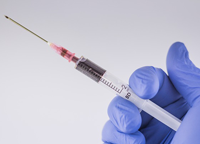 A warrant must be obtained before police can draw blood for a DUI test in Philadelphia. It is now unconstitutional to expose an individual to increased criminal penalties for refusal to submit a blood test for alcohol or drugs.
A warrant must be obtained before police can draw blood for a DUI test in Philadelphia. It is now unconstitutional to expose an individual to increased criminal penalties for refusal to submit a blood test for alcohol or drugs.
This landmark decision handed down by the United States Supreme Court promises to have a wide-sweeping effect on anyone arrested for a DUI in Philadelphia.
Improperly informing a defendant that they will be criminally penalized for blood refusal make’s a defendant’s consent to a blood draw the product of coercion (persuading someone to do something by using force or threats) and therefore involuntary.
What do the new DUI testing refusal laws mean to me?
Significant Reductions In Mandatory Minimum Sentences
The increased penalty under 3802(a)(1) with refusal for a blood draw is unconstitutional. The current enhancement under 3804(c) cannot apply to any blood refusal, and because the police often don’t distinguish between breath or blood at the time of the refusal, any refusal probably cannot be enhanced under the current scheme.
This is a huge change for anyone being prosecuted for a DUI with a refusal of blood or breath testing in Philadelphia. Therefore, even if the DA can prove that you were driving while intoxicated through the mere observations of the arresting officer, you will not be sentenced as a “Tier 3” offender. This could mean a significant reduction in the mandatory-minimum sentences you would have otherwise been facing. For example, if you were facing your third DUI conviction, the mandatory minimum sentence would be 10 days as opposed to 1 YEAR in jail. You will also be able to avoid license suspensions!
Defendant Can Suppress The Results Of Any Blood Test In Philadelphia
Under the new case law, I believe that a defendant can suppress the results of any blood test in Philadelphia due to current police practices. In Philadelphia, police read a suspected DUI defendant what are called “OÇonnell” warnings, where a person is told that if they refuse a chemical test they will be punished more severely.
They NEVER secure a search warrant as is now required. Therefore, the DUI suspect is not “freely consenting” (which would be an exception to the requirement that police obtain a warrant for a blood draw). In many cases, if the blood tests are suppressed the Commonwealth will be unable to prove their DUI case because while a police officer’s observations of the suspect may give them a suspicion the person is intoxicated (which could be the basis for a warrant), those observations will often fall short of proof beyond a reasonable doubt required for a conviction.
And again, even if the Commonwealth can secure a conviction on observations alone, the DUI defendant will not be subject to the harsh mandatory minimums that are required for motorists with drugs in their systems, or with high amounts of alcohol.
Prosecutors will undoubtedly try to argue that the new Supreme Court case does not apply to the way Philadelphia police conduct their chemical testing in DUI cases. It is imperative that you hire a Philadelphia DUI attorney who understands the law and is ready to aggressively defend your constitutional rights. Please call me with any questions about the new DUI laws in Philadelphia.
Frequently Asked Questions About DUI in PA
The best defense against getting convicted of a DUI in Philadelphia is to have a good offense.
Did you know that Thanksgiving is the holiday with the most alcohol-related crashes and crash fatalities? Taking preventative measures to avoid drinking and driving, especially if you’ve already made some bad decisions, is the best way to prepare for peak DUI seasons.
How do I know if I am “safe” to drive?
If you are even considering the question – DON’T DRIVE.
In terms of the legal limit in Pennsylvania, .08 Blood Alcohol Content (BAC) is the limit, but anything above that is per se illegal. This means that the law says you are unsafe, even if you are perfectly capable of driving and not exhibiting any signs of unsafe driving.
As your BAC increases above .08, the penalties become more severe for a DUI, with the highest level of .16 or above carrying the most severe penalties. DUI definitions are governed by 75 Pa. C.S.A.§ 3802, and the penalties for a violation of § 3802 is governed by 75 Pa. C.S.A.§ 3804.
So if my alcohol blood test is under .08, I can drive without fear of arrest?
NO! Call a cab or a friend to be safe.
Not necessarily, because a BAC level under .08 could still potentially be a violation of § 3802(a)(1), sometimes referred to as the “general impairment” statute, which says a person can’t drive after imbibing a sufficient amount of alcohol such that the individual is rendered incapable of safely driving.
Should you get pulled over for a traffic infraction, have a minor fender bender, drive through a checkpoint or otherwise encounter law enforcement on your way home, you run the risk of the officer forming an opinion that you are unsafe to drive. Once you end up in front of a judge or jury, the ultimate decision as to whether you were “generally impaired,” and thus guilty of DUI, will depend on the officer’s testimony about how you appeared, and acted, at the time you were driving.
Often the officer’s observations will include an odor of alcohol, bloodshot eyes, slurred speech, slow movements, or other physical observations that will be difficult to refute at trial. A conviction under the “general impairment” statute does not require any evidence of your actual BAC, which may have been under .08.
What if I come up to a DUI checkpoint, can I turn around?
Technically speaking, you can legally avoid a checkpoint.
However, making that U-turn out of the line of cars will probably draw some attention, and could be a violation of the motor vehicle code – which would give officers probable cause to stop you for the illegal U-turn.
Checkpoints are legal stops, and Pennsylvania Courts have upheld their legality because the intrusion upon your rights is very limited. A checkpoint is not intended to be a long confrontation, but a very brief interaction that if all goes well only takes a couple of seconds, but Checkpoints do still have rules.
Pennsylvania caselaw says that a DUI checkpoint must be clearly marked, or otherwise made known in advance (this could be as simple as a blurb in the local paper that a checkpoint will take place at a particular time and location), so that citizens who do not wish to be stopped can avoid the checkpoint.
If you do encounter a checkpoint, and can avoid it without violating any other traffic laws, you are permitted to do so.
If I do get stopped, should I blow into the breathalyzer?
The million dollar question. There is no right answer to this question.
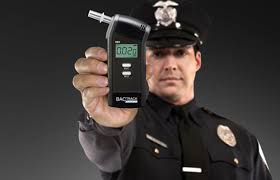 Obviously you are the only person who knows what you consumed, and when. Start with considering the fact that you have no legal right to refuse a breathalyzer, so if you do refuse there are automatic consequences such as license revocation, even if you are not ultimately convicted of the underlying DUI.
Obviously you are the only person who knows what you consumed, and when. Start with considering the fact that you have no legal right to refuse a breathalyzer, so if you do refuse there are automatic consequences such as license revocation, even if you are not ultimately convicted of the underlying DUI.
Next, consider that refusing to submit to the breathalyzer will be admissible evidence against you at trial. The right to remain silent, right to a lawyer, and right against self-incrimination do not apply to a breathalyzer (or blood) request by police. There are “implied consent” laws that in a nutshell say, when you get in a car and drive on government-funded roads you automatically consent to submit to chemical testing, provided the officer has reasonable suspicion that you might be DUI.
Keep in mind, that whether reasonable suspicion actually existed is not up to you – that will be decided by a judge later. Only you, or your attorney, can challenge the existence of reasonable suspicion. This, obviously, will be long after you made the decision of whether, or not, to blow into the machine.
At trial, the district attorney will be permitted to argue that you refused because you knew the results would be bad for you, and the jury could infer that if you were sober you would have blown, and thus you must have been drunk if you refused. Finally, consider that if you are convicted of DUI, and it is determined that you knowingly refused chemical testing, the penalty is the highest, in other words the same as if your BAC was above .16.
If you know with absolute certainty that no alcohol will show up, there is no good reason not to comply with a request for chemical testing. On the other hand, in many cases the only strong evidence of intoxication will be the results of the test and could very well be the most incriminating evidence against you.
If you do find yourself in a situation where you’re making a decision to blow, or not into a breathalyzer, no matter what you decide. Contact a qualified DUI lawyer as soon as possible.





